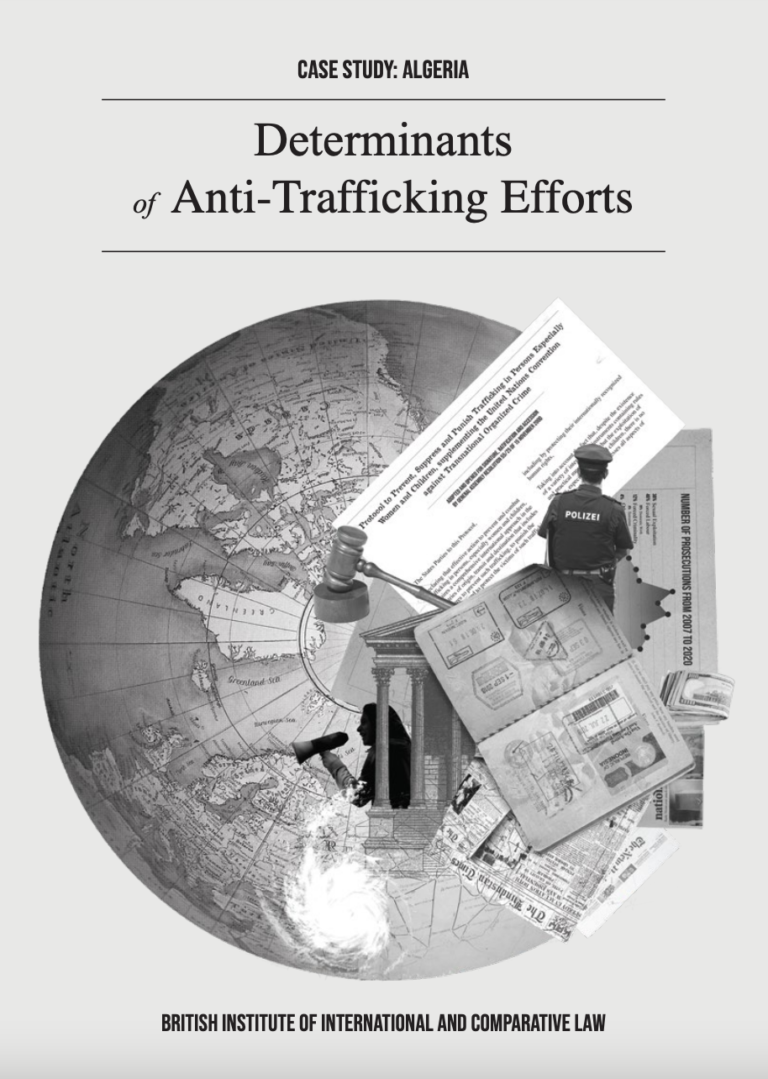This study was carried out to identify and sequence the determinants impacting the Algerian government’s anti-trafficking efforts. As the only study so far to explore the issue of determinants in Algeria, the authors anticipate this report will improve the understanding of factors which hinder and motivate Algeria’s anti-trafficking response. The authors recommend reading ‘Part 1: Introduction’ before this Executive Summary to understand the limitations and parameters of this discussion.
The authors learned that regional instability has fuelled concerns for Algeria’s economic situation and national security, while also contributing to the overlapping of transnational crime networks in the region. These determinants, together with Algeria’s political system and the historical legacy, has led the country to adopt a ‘tough on migration’ securitisation policy which criminalises and deports irregular migrants. This singular approach is employed against the whole range of transnational crime: terrorism, smuggling, and drugs, arms, and human trafficking. It is arguable that Algeria is primarily focused on combating counterterrorism and crime, whereby it perceives counter-trafficking to be one way to achieve these original objectives. The securitisation agenda has also led to state-sponsored xenophobia, a determinant which enables to state to justify its deportation campaigns, instead of protecting trafficking victims and regularising migration statuses.

